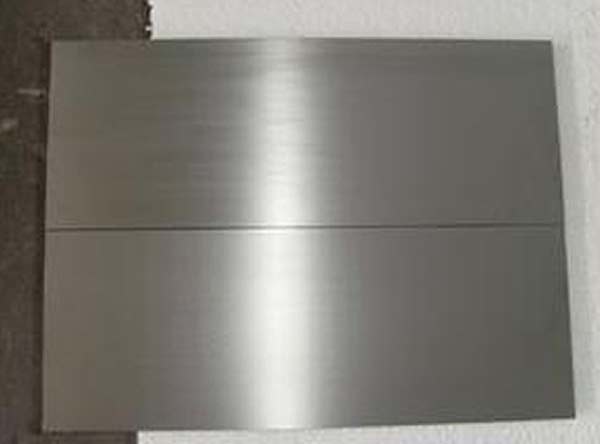Alloy Sheet Metal: Understanding the Manufacturing Process and Benefits
Introduction:
Alloy sheet metal plays a vital role in various industries due to its exceptional properties, including high strength, lightweight, and corrosion resistance. In this article, we will delve into the manufacturing process of allo Zinc-coated steel panel y sheet metal and explore its characteristics, advantages, usage methods, tips for selecting the right product, and ultimately draw a conclusion on why it is an excellent choice for many applications.
Manufacturing Process:
The production of alloy sheet metal involves alloy sheet metal factory several crucial steps. Firstly, raw materials such as aluminum sheets or nickel alloy sheets are obtained from reputable suppliers. These sheets undergo precision cutting to achieve specific dimensions required by customers. Then comes the bending process where the desired shape is formed using speci Aluminum sheet alized machinery. Other processes like welding and assembly may be involved depending on project requirements. Lastly, surface treatment techniques such as zinc-coating are applied to enhance durability.
Characteristics of Alloy Sheet Metal:
Alloy sheet metals offer unique characteristics that make them suitable for diverse applications:
1) High Strength: The combination of different metals results in improved strength and rigidity compared to pure metals.
2) Lightweight: Alloy sheet metals offer excellent strength-to-we alloy sheet metal manufacturer ight ratios, making them ideal choices for aerospace or automotive industries.
3) Corrosion Resistance: The addition of certain elements enhances their ability to resist corrosion in harsh environments.
4) Versatility: Alloy sheet metal can be easily fabricated into various shapes while maint alloy sheet metal wholesale aining structural integrity.
Advantages of Using Alloy Sheet Metal:
Choosing alloy sheet metal brings several advantages:
1) Cost-effective So Nickel alloy sheet lution: Despite their advanced properties, alloy sheets remain affordable compared to other alternatives.
2) Design Flexibility: The versatility offered by alloy sheet allows designers more freedom when developing innovative products.
3) Efficient Production Processes: Due to their high workability and compatibility with modern manufacturing technologies,
fabrication becomes faster and more efficient leading to reduced production costs.
Usage Methods:
The uses of alloy sheet metal are vast and diverse. Common applications include:
1) Aerospace: Alloy sheets find utility in aircraft components, where their lightweight nature combines with strength to enhance fuel-eff

iciency.
2) Automotive: Structural parts like bo alloy sheet metal dy panels and frames are often made from alloy sheet metals due to their strength and corrosion resistance.
3) Construction: The versatility of alloy sheets makes them suitable for roofing, siding, and other architectural purposes.
4) Electronics: Alloy sheets serve as a component for electrical enclosures or heat sinks due to their excellent thermal conductivity.
How to Choose the Right Alloy Sheet Metal:
When selecting alloy sheet metal, several factors should be considered:
1) Application Requirements: Analyze the specific conditions under which the material will operate – t

his includes temperature range,
exposure to chemicals or humidity levels that may impact product performance.
2) Material Compatibility: Ensure that selected alloys are compatible with the surrounding materials used in your project.
3) Supplier Reputation: Choose suppliers who have a track record of deliv alloy sheet metal ering high-quality products within specified timeframes.
Conclusion:
Alloy sheet metal manufacturing offers numerous benefits across various industries. With its exceptional properties including high strength, lightweight construction, corrosion resistance, and cost-effectiveness; it is clear why these materials have become integral components in many products. By considering application requirements while choosing top-rated suppliers, customers can confidently implement alloy sheet metals in their alloy sheet metal projects knowing they have selected an ideal solution for success.



